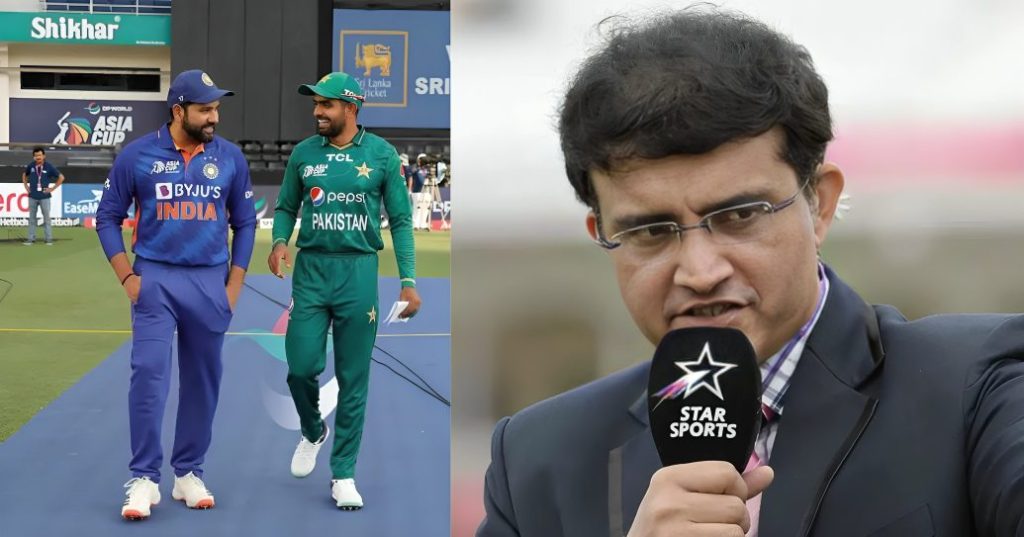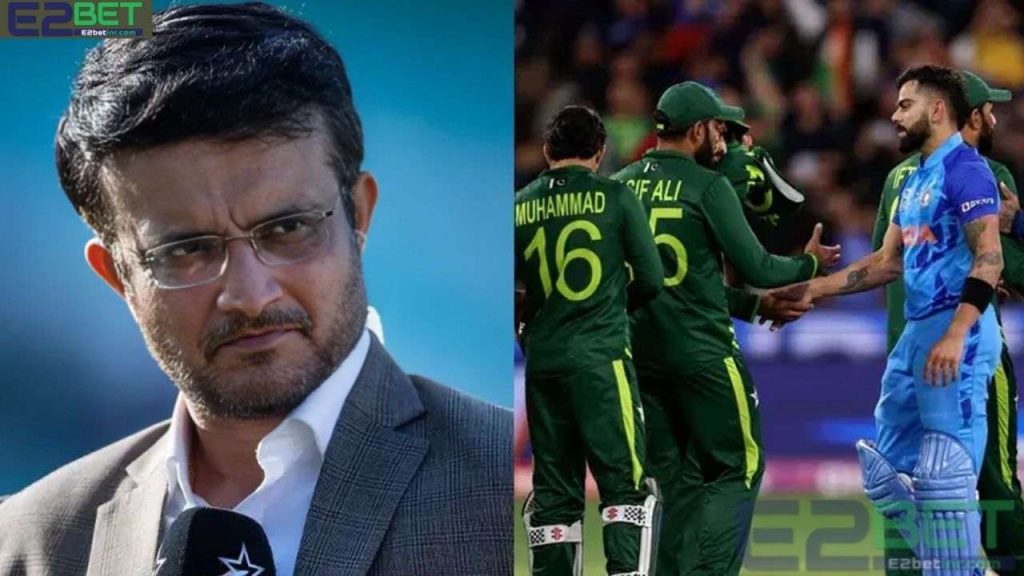Former India captain Sourav Ganguly has called for a firm stance on cricketing ties with Pakistan, urging the Indian cricket board to sever all ties with their Pakistani counterparts following the Pahalgam terror attack. Ganguly, who has always been vocal about various issues in Indian cricket, made these comments after being asked about the Board of Control for Cricket in India’s (BCCI) decision to cut ties with the Pakistan Cricket Board (PCB). He strongly agreed with the BCCI’s stance and expressed that such action was necessary to ensure the safety and security of the country.
In his statement, Ganguly emphasized the gravity of the situation, highlighting that terrorist activities, like the one in Pahalgam, have been recurring incidents that cannot be ignored or tolerated. He called for decisive action from the BCCI, stating, “100 percent, this (breaking ties with Pakistan) should be done. Strict action is necessary. It is no joke that such things happen every year. Terrorism cannot be tolerated.” His comments reflect a growing sentiment among former cricketers and fans alike, advocating for India to take a firm stand against terrorism and prioritize national security above sports.
Ganguly Says ‘No’ to Cricket with Pakistan: The Declining Indo-Pak Bilateral Relations in Cricket

The relationship between India and Pakistan has been strained for many years, not only on the political front but also in the realm of sports, particularly cricket. The gradual decline in bilateral cricket series between the two nations began in the early 21st century. The last time India toured Pakistan for a bilateral series was back in 2007/08, and the final Indo-Pak bilateral series took place in 2013. The change in these interactions was largely due to the aftermath of the 26/11 attacks in Mumbai, a tragic event that resulted in the loss of innocent lives.
Following the 26/11 attacks, tensions escalated, and India’s cricketing relationship with Pakistan was impacted severely. The Indian cricket team has consistently refused to play bilateral series with Pakistan due to security concerns and political differences. This decision has only been reaffirmed after recent terror attacks, including the one in Pahalgam. Ganguly’s comments align with the growing consensus that national security must be prioritized over sporting engagements with countries involved in supporting terrorism.
The Indian Premier League (IPL) also witnessed a significant shift in its approach toward Pakistani cricketers after the 2008 season. Pakistani players were banned from participating in the IPL, a decision that reflected India’s growing unease with Pakistan’s role in international terrorism. This move, coupled with the refusal to play in bilateral series, has created a significant gap in cricketing relations between the two nations.
India’s stance on playing Pakistan in major tournaments has also been affected by these ongoing security concerns. Although India and Pakistan continue to face off in international events organized by the International Cricket Council (ICC), such encounters are only possible because of the ICC’s role in ensuring the participation of all member nations in global tournaments.
Rajeev Shukla, the Vice-President of the BCCI, further clarified India’s position on the matter. Speaking to Sports Tak, Shukla confirmed that the BCCI would follow the orders of the Indian government regarding cricketing ties with Pakistan. He reiterated that India would not engage in bilateral cricket with Pakistan as long as the government’s stance remains unchanged. However, Shukla also noted that when it comes to ICC tournaments, India is bound to play against Pakistan due to the ICC’s governing structure, which ensures that all teams compete in the event.
“We are with the victims, and we condemn it. Whatever our government says, we will do. We don’t play with Pakistan in a bilateral series because of the government’s stand. And we will not play with Pakistan in bilaterals going forward. But when it comes to the ICC event, we play due to ICC engagement. ICC is also aware of what is happening, they will do it,” Shukla said, emphasizing the role of the ICC in facilitating cricket between India and Pakistan.
The issue of playing Pakistan in cricket has sparked ongoing debate. While some believe that sports can act as a bridge to better relations between nations, many feel that the current security situation and the threat of terrorism outweigh any diplomatic benefits that might come from engaging with Pakistan on the cricket field. As such, Ganguly’s call for a complete severance of ties with Pakistan in cricket is likely to fuel further discussions on the role of sports in international relations.
Also Read:



